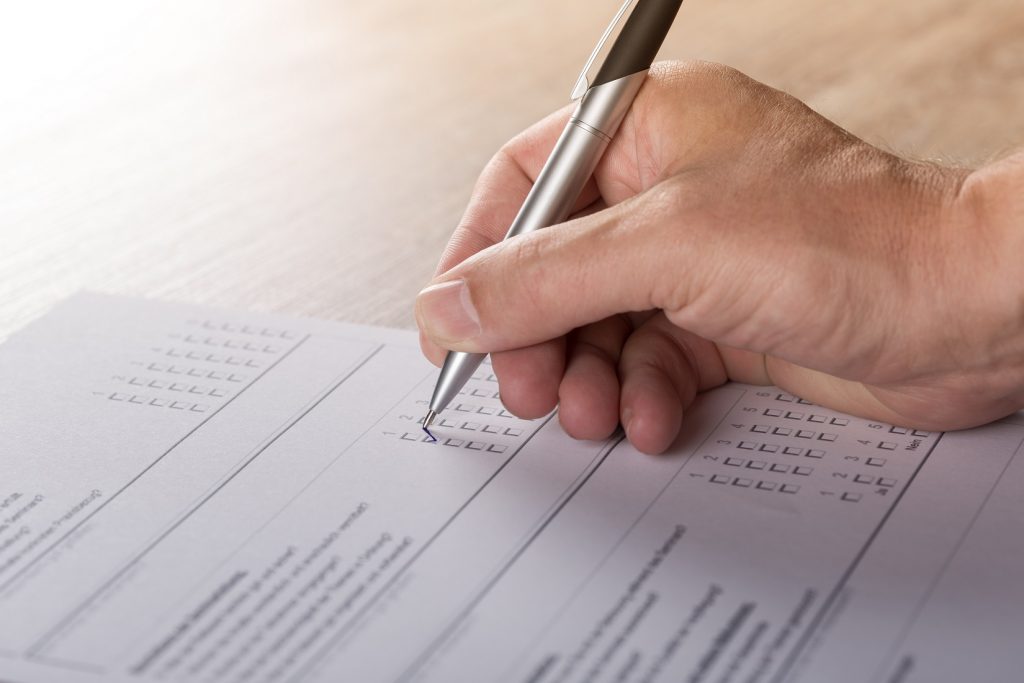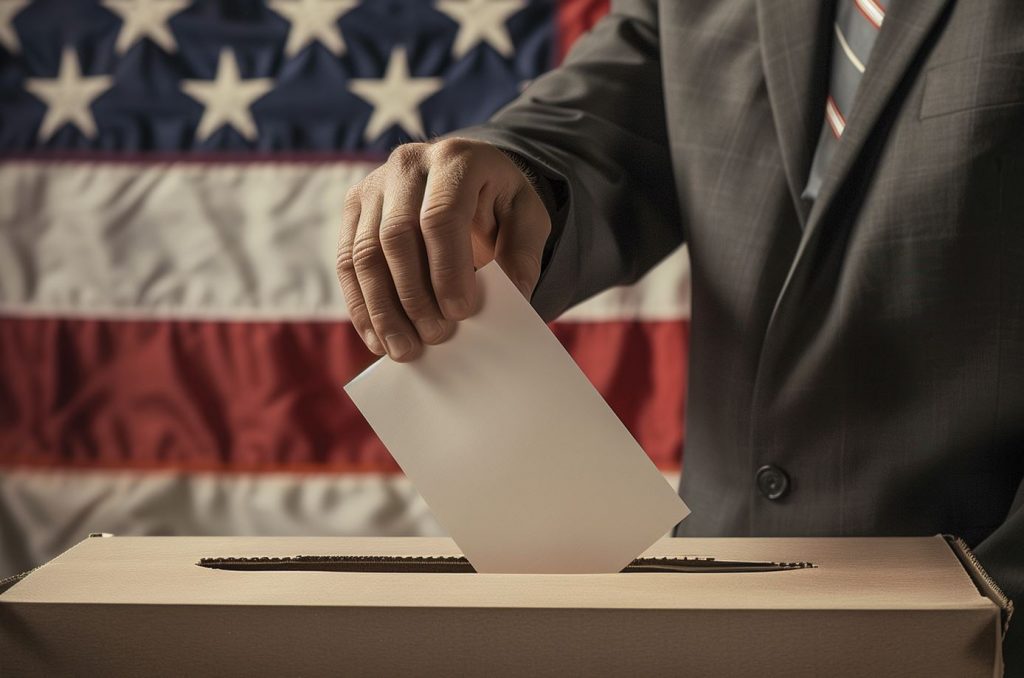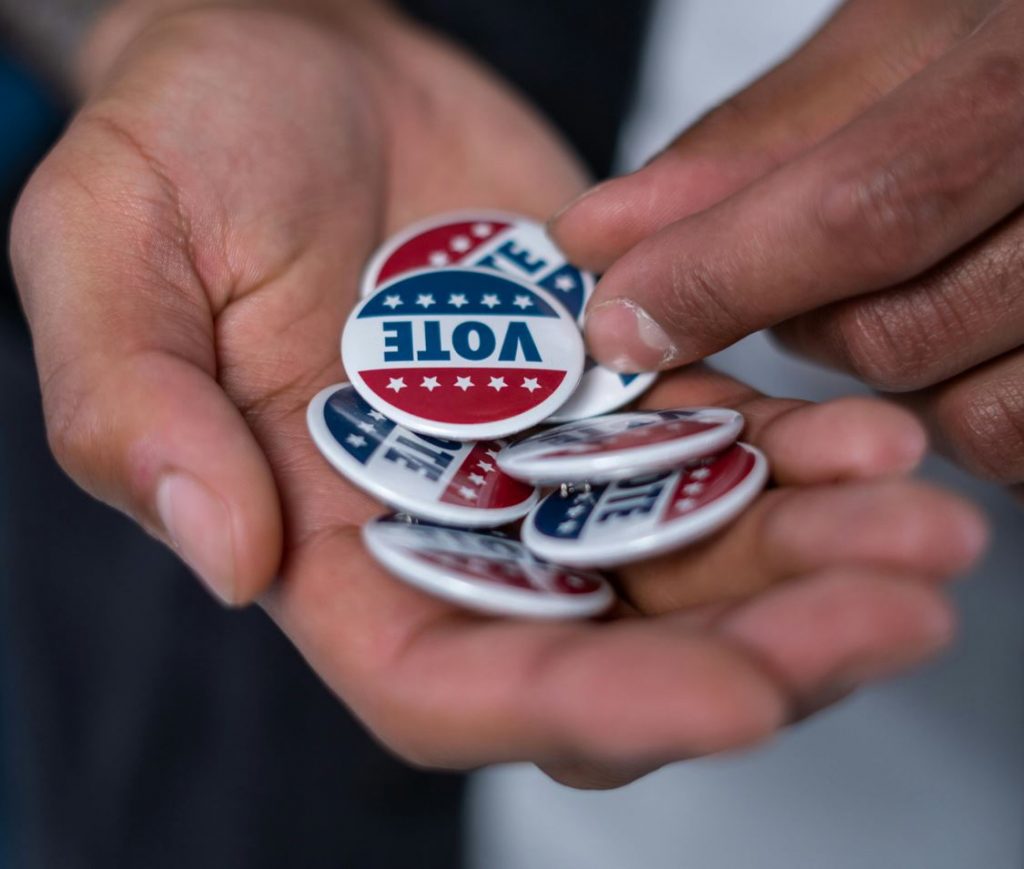Felony and Misdemeanor Election Crimes in the Michigan.
In Michigan, many crimes involve violating or attempting to violate election laws. The right to vote is sacrosanct, and criminal election laws reflect our democracy’s need for a fair, balanced, and untainted election process.

Michigan’s election laws consider the sacredness of a person’s vote.
A democracy without the ability to conduct a fair, untarnished, and confidential election is not a democracy. A notable politician once said, “Voting is the most precious right of every citizen, and we have a moral obligation to ensure the integrity of our voting process.” The government creates and strictly enforces criminal election laws so the public can trust that their votes are protected, authentic, and counted. The following are various examples of election law crimes in Michigan.
Soliciting Votes Within 100 Feet of a Polling Station
No person is permitted to persuade or attempt to persuade other individuals to vote for or against any candidate or party within 100 feet of a polling station, in the hallway to a polling station, or by or near the entrance to a building leading to a polling station. The prohibition against persuading or attempting to persuade a potential voter includes passing out literature, holding signs, calling out audibly partisan information, and distributing partisan stickers. Anyone who violates this section of Michigan law is guilty of a misdemeanor and can be sentenced to jail, years of probation, and substantial fines and costs.

Indiscriminate Challenge by an Election Inspector
Poll workers are called “Election Inspectors” in Michigan. An election inspector’s job is to challenge an applicant applying for a ballot if the inspector knows or has good reason to suspect that the applicant is not qualified to vote or not properly registered in that precinct. An Election Inspector may challenge the right of a person to vote who has previously applied for an absent voter ballot and then claims on election day that they did not receive or lost their absentee ballot.
To initiate a challenge to the applicant’s ability to vote, the inspector must act in good faith and have good cause. If the inspector acts indiscriminately and without good cause, they are guilty of a misdemeanor and can be sentenced to jail time, probation, and hefty fines.
Interference with an Election Inspector or Challenger
An Election Inspector has the right to perform their lawful function without interference. If a person acting in an official capacity on behalf of an election board prevents an Election Inspector’s challenge or fails to provide suitable conditions for them to perform their official duties, that person would be guilty of a felony punishable by up to 2 years in prison. Interference with an Election Inspector is one of Michigan’s most commonly charged election law crimes.
Improperly Displaying the Name of an Elected or Appointed Official
It is illegal to post any temporary material, sign, or visible document at a polling place containing the name of any elected or appointed official. A violation of this law is a misdemeanor punishable by a fine.
Intimidating an Election Official With Intent to Interfere With Their Election-Related Duties
Prosecutors treat first and second offenses as misdemeanors, but a third or subsequent offense carries a felony charge. Under Michigan law, intimidation is an unconstitutional, unprotected action intended to cause injury or cause someone to fear injury. Intimidation allegations are often exaggerated or falsified. A skilled defense attorney can frequently discredit intimidation allegations through a vigorous and truth-seeking cross-examination of the prosecution’s witnesses.

Various Misdemeanor Offenses Punishable By Up to 10 Days in Jail
- Giving something of value to a person in exchange for a vote or promise not to vote for a candidate.
- Receive or agree to accept something of value in exchange for a vote or a promise not to vote for a candidate.
- Soliciting something of value from a candidate in exchange for a vote.
- Threatening to discharge an employee to influence that person’s vote.
- A priest, pastor, curate, or another officer of a religious society may not attempt to influence a parishioner’s vote by threatening a penalty of ex-communication, dismissal, or expulsion, or command or advise the voter, under pain of religious disapproval.
- Hiring or causing a motor vehicle to pick up voters for transportation to a polling station, unless the voters cannot transport themselves.
- While the polls are open on election day, a person shall not solicit votes in a polling place or within 100 feet of an entrance to the building in which a polling place is located.
- Participating in a meeting of more than two persons, other than immediate family members, at which time an absent voter ballot is being voted.
Various Felony Election Law Crimes Punishable by Prison Time
- Influencing or attempting to influence a person’s vote by bribery, menace, or other corrupt means.
- Breaking open or violating the seals or locks of any ballot box or voting machine used or in use at an election.
- Willfully damaging or destroying a ballot box or voting machine.
- Possessing a ballot box or voting machine unless lawfully authorized.
- Concealing, withholding, or destroying a ballot box or voting machine, or fraudulently or forcibly adding to or diminishing the number of ballots legally deposited in the box or the totals on the voting machine.
- Willfully destroying, mutilating, defacing, falsifying, or fraudulently removing or secreting any record, election list of voters, affidavit, return, statement of votes, certificates, poll book, or any paper, document, or vote of any description.
- Disclosing the name of any candidate voted for by another person or the contents of their ballot.
- Obstructing or attempting to obstruct any person attempting to vote lawfully.
- Opening the envelope containing another person’s absentee ballot, or destroying, modifying, or altering another person’s absentee ballot.
- Return, solicit to return, or agree to return an absent voter ballot to a clerk responsible for collecting absentee ballots.
- Possessing an absent voter ballot mailed or delivered to another person, regardless of whether the ballot has been voted.
- Influence or attempt to influence a disabled, absentee voter on how they should vote.
- Planning or organizing a meeting at which absent voter ballots are to be voted.
- Falsely impersonate another person or vote or attempt to vote under the name of another person.
- Assuming a false or fictitious name to vote or to offer to vote by that name.
- Voting in an election where the elector is not qualified or registered to vote.
- Voting or attempting to vote in a precinct other than the precinct where a person resides.
- Voting more than once in the same election (for example, once by absentee ballot and once in person).
- Compensating another person for registering individuals to vote, if that compensation is based on the number of people registered or people from one particular political party.
- Impersonating an election official.
Penalties for Violations of Election Laws in Michigan
Unless otherwise specified in a statute, misdemeanor violations of Michigan’s election law crimes are punishable by up to 90 days in jail, up to two (2) years of probation, and various fines and costs. Felony offenses are punishable by up to five (5) years in prison, up to five (5) years of probation, and fines and costs, unless otherwise specified in the law.

Criminal Defense Lawyers Handling Election Law Violations
If you are accused of violating a felony or misdemeanor election law, you may face considerable time in custody. Because voting is one of the most sacred American rights, prosecutors and judges take these matters seriously and look to impose severe punishments. The unforgiving response of the government to election law crimes illustrates the sanctity of our election system.
The Defense Team with LEWIS & DICKSTEIN, P.L.L.C. has decades of experience successfully defending clients on felony and misdemeanor charges in courts throughout Michigan. Call us for a free consultation if you face allegations of a voting or election-related crime. We will take the time to listen to you, answer your questions, and address your concerns. We will find a way to help you, and we will not let you down!
Call us today at (248) 263-6800 for a free consultation or complete an online Request for Assistance Form. We will contact you promptly and find a way to help you.














